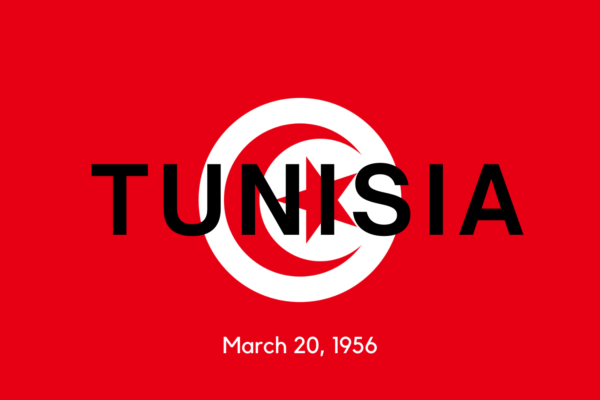The journey of Muammar Gaddafi is one of a young, handsome, charismatic army officer, from a revolutionary hero to an international pariah.
The death and assassination of the former Libyan colonel and dictator, Muammar Gaddafi, in 2011 startled the world. He was significant in global politics around the second half of the 20th century. He had ruled as the de facto leader of Libya for over 40 years (1969-2011).
While Muammar Gaddafi regarded himself as king, displaying his wealth to the entire African continent. In October 2011, he died the richest man in the world. At the time of his death, Gaddafi’s fortune was the equivalent of nearly $200 billion, held in numerous banks around the globe and oil investments in the country. He was wealthier than Warren Buffet, Bill Gates, and Carlos Slim combined if calculated now.
He had enjoyed undisputed control over the largest oil reserves in Africa for the preceding 41 years, during which his investments caused his bank accounts to swell at an alarming rate. His Airbus A340 M cost almost $100 million.
What’s the real mystery behind Muammar Gaddafi? What’s the true story?
Born in 1942, near Sirte, Libya, Qaddafi proved to be a talented child and graduated from The University of Libya in 1963. Soon after that, in 1965, he graduated from Libyan military academy and rose progressively through the ranks. In September 1969, Qaddafi took control of the government in a coup responsible for deposing King Idris. Qaddafi became the commander in chief of the armed forces and the chairman of Libya’s new governing body, the Revolutionary Command Council.
Throughout his reign, he surpassed many hurdles in his way. In 1970, Qaddafi evicted the United States and British military outposts from Libya, ending the Cold War. He nationalized all foreign-owned Libyan petroleum assets in 1973 after evacuating most Libyans of Italian and Jewish heritage. Following his stringent Islamic ideals, he forbade alcoholic beverages and gambling.
Qaddafi was known for his erratic and unpredictable behaviour on the international front. The UN believes that the Libyan government was involved in several gruesome terrorist attacks in Europe perpetrated by Palestinian or other Arab extremists that Libyan agents slew. When the United States government found out about his operations, in April 1986, a group of American aircraft based in the United Kingdom attacked several Libyan targets. They killed or wounded many of Qaddafi’s children and narrowly missed him.
On the other hand, Qaddafi handed over the accused perpetrators of the bombing in the late 1990s to international authorities. UN lifted sanctions against Libya in 2003. The United States also withdrew most of its sanctions following Qaddafi’s declaration that Libya would end its unconventional weapons development.
He was the first African Union (AU) president in February 2009. He delivered his first speech before the UN General Assembly later that year. As a result of his lengthy critical speech, he caused quite a bit of controversy worldwide. He tried to remain the chairman of AU beyond the standard 1-year term, and the resistance from other African countries stopped his mission.
The 2011 Revolt
Protests opposing Muammar Gaddafi’s rule began in Libya’s second city, Benghazi, in the country’s east on 15th February 2011. On hearing the first demands for a Libyan “day of rage,” Gaddafi swore – almost legitimately – to join the protests. As Mubarak and Ben Ali had done in Egypt and Tunisia, the lure of independence and maybe deposing the colonel was too much for some Libyans, particularly in the east.
In early footage from Benghazi, outraged young Libyans smashed up a green monolith representing the fictitious liberation doctrine that had kept them imprisoned since the 1970s – the Green Book. As the revolt grew, Gaddafi’s cruelty toward opponents and exiles in the 1970s and 1980s was unmistakable. This time, towns and cities had dared to vandalize his posters and demand his doom. Military troops and mercenaries nearly overpowered the ragtag rebels, consisting of military deserters and untrained militias (NTC). The insurgents were saved from extinction by NATO’s intervention in March, allowed by a UN resolution calling for the protection of civilians. Still, it took months for them to exploit the situation.
A NATO coalition commenced airstrikes and a no-fly zone favouring the rebel troops at the end of March. NATO’s six-month military intervention became decisive. NATO killed Qaddafi’s son in April. A decisive triumph for the opposition, the fall of Tripoli in late August signified the end of Qaddafi’s authority. Tripoli fell, and Gaddafi went into hiding, claiming his people were behind him and vowing victory over “occupiers and collaborators.” His dictatorship had crumbled, but many feared he would flee and spearhead an insurgency.
Gaddafi’s Grisly End
Gaddafi eventually met his dreadful end on 20th October 2011. NTC forces discovered him hiding in a tunnel following a NATO airstrike on his convoy. He attempted to flee the last of his remaining strongholds, Sirte. The NTC reported that Gaddafi died due to injuries sustained during a firefight during which loyalist forces tried to free him. Still, a graphic video of his final moments shows rebel battalions beating him. One of them sodomized him with a bayonet before being shot several times. Gaddafi’s assassination is a violation of international law.
He was either “killed in the crossfire” or slain by a mob of jubilant, battle-hardened fighters. The exact circumstances of his death are still up in the air. Many Libyans were pleased that those 42 years of oppression had finally ended, even though it meant the country’s people and other victims around the world were denied justice.
Today in retrospect, we wonder whether there was a better way. Was the world fed the wrong impression of Gaddafi? The high standards of living many Libyans enjoyed are no more. Would Africa as a continent be in a better place if he was alive? Were his intentions noble enough for other African leaders to pursue?





